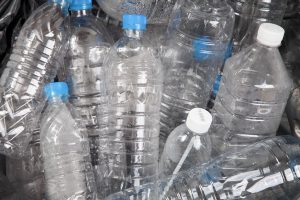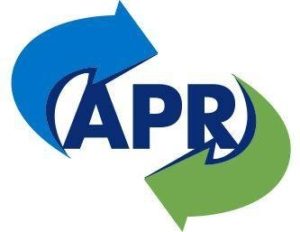
Conrad MacKerron
In the last two years, there has been a positive shift by previously recalcitrant brands to accept the importance of packaging recycling as part of total product life cycle and to commit to increasing packaging recyclability.

Conrad MacKerron
In the last two years, there has been a positive shift by previously recalcitrant brands to accept the importance of packaging recycling as part of total product life cycle and to commit to increasing packaging recyclability.
 The PET package has come a long way since the founding of the National Association for PET Container Resources in October of 1987.
The PET package has come a long way since the founding of the National Association for PET Container Resources in October of 1987.
 Working with the ever-changing stream of packaging innovations is a constant challenge for the plastics recycling industry.
Working with the ever-changing stream of packaging innovations is a constant challenge for the plastics recycling industry.

Clarissa Morawski
Single-use packaging is easy to spot. A short walk along a beach, anywhere in the world, will reveal the consequences of our throwaway culture as each tide brings in a fresh layer of debris, most of it single-use plastics.

Jonathan Levy
Over the past several months, the Institute of Scrap Recycling Industries (ISRI) has been studying the issue of degradable additives and how the inclusion of these compounds in the manufacture of plastic items can impact their recyclability. Continue Reading

Susan Collins
The Container Recycling Institute (CRI) commends PepsiCo for recent statements from Vice President Roberta Barbieri supporting the value of bottle bills for producing clean materials for bottle-to-bottle recycling. However, it is important to point out inaccuracies in Ms. Barbieri’s statements, particularly about the cost-effectiveness of bottle bills (container deposit laws).

Michael Stephen, Oxo-biodegradable Plastics Association
Recyclers depend for their survival on demand for plastic products made with their recyclate, but plastic is under attack from environmentalists, and line after line – and sometimes whole factories – are closing.
Nina Bellucci Butler of More Recycling states correctly in a Sept. 27 article in Plastics Recycling Update that “we have capacity to purchase HDPE, PET, PP and other resins. We don’t have the capacity to take the material from the MRF [and] further segregate it so we can get those discrete resins to market.”
Accelerating the transition to a circular economy has become a high priority for major companies and governments around the globe.
Since its founding in 1987, our organization, the National Association for PET Container Resources (NAPCOR), has worked to expand boundaries while staying true to our foremost mission of protecting and promoting the PET package.

